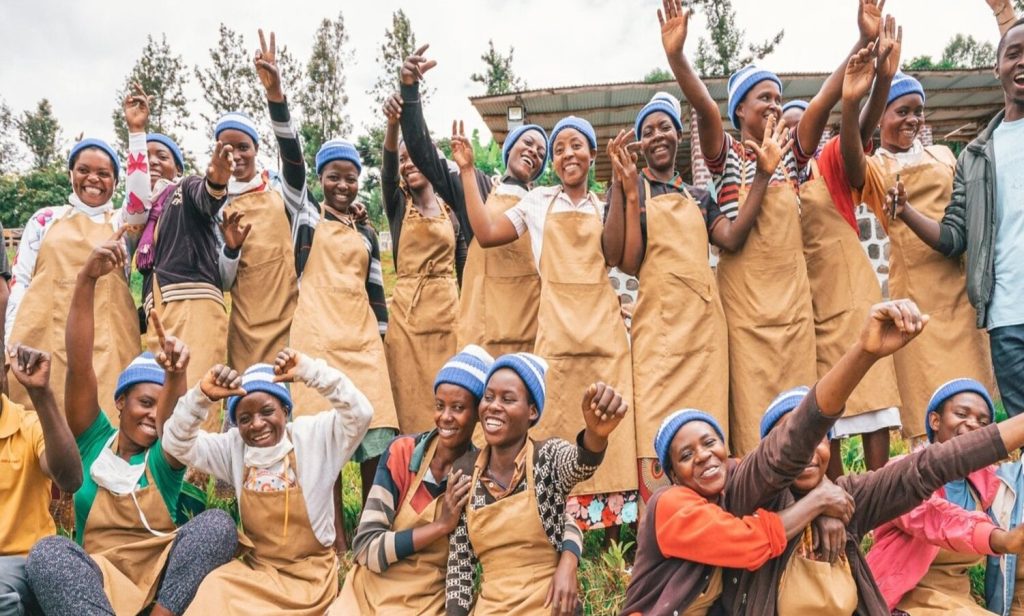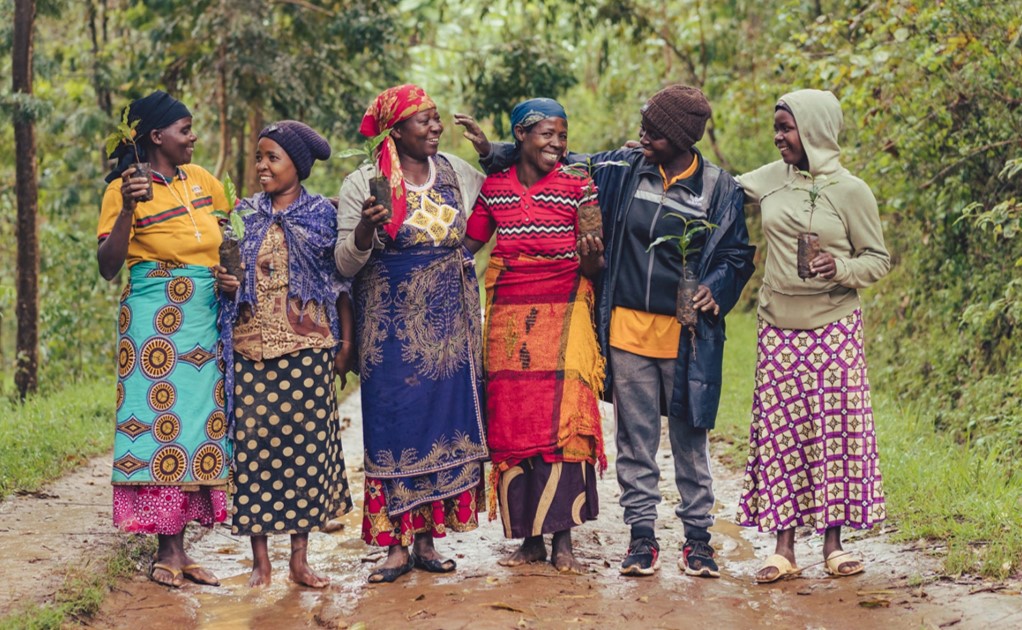
About the Together Women Rise Grants Program
Together Women Rise’s Grants Program has two key components that support our overall mission to achieve global gender equality. Featured Grants are largely focused on delivering direct services by funding grassroots organizations that empower and support women and girls in low-income and marginalized communities in the Global South. Our Transformation Partnerships are designed to invest in areas where we can make the biggest impact on achieving global gender equality by addressing the root causes of gender inequality.
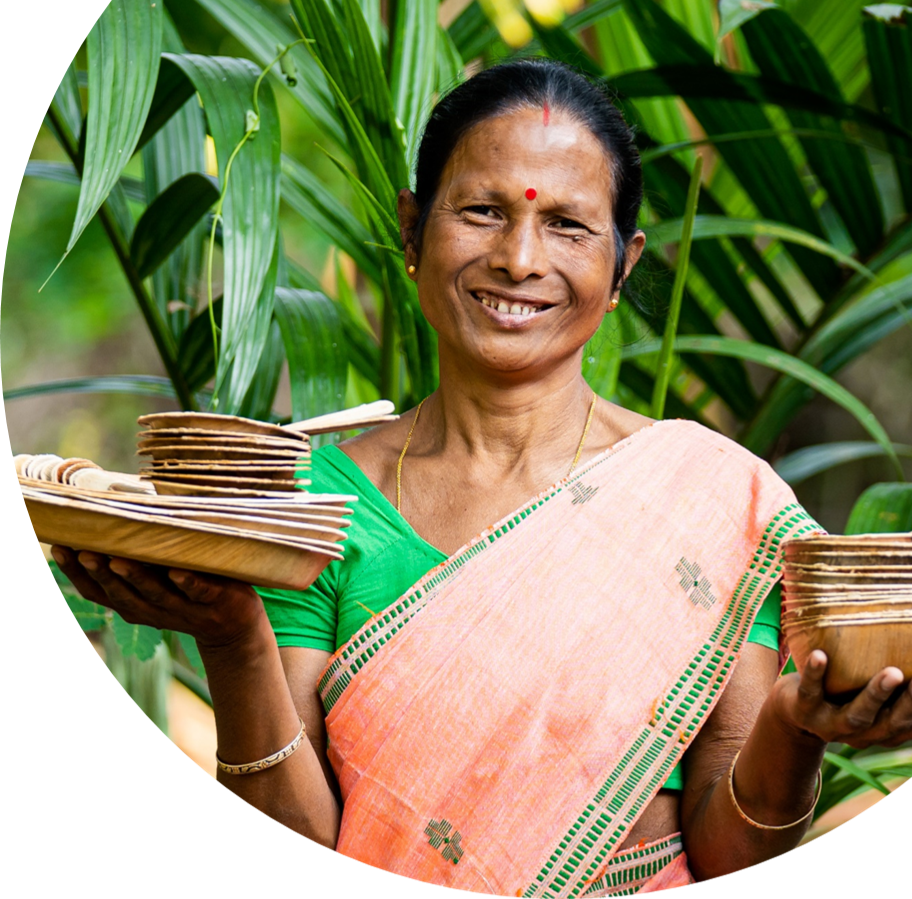 Through our Featured Grants Program, we highlight a different organization/project each month, providing a variety of learning materials on the issue and how the grant will be used.
Through our Featured Grants Program, we highlight a different organization/project each month, providing a variety of learning materials on the issue and how the grant will be used.
Featured Grants may include:
- Project grants to fund a specific project or a particular deliverable for a specific timeframe; or
- General Operations grants to cover an organization’s day-to-day, ongoing expenses, such as salaries, utilities, office supplies, and more; or
- Capacity-building grants to strengthen an organization’s systems and thereby increase its effectiveness.
The Global Issue
Economic Opportunity for Women
Economic opportunity is a cornerstone of gender equality. Without the ability to control their resources, earn a decent living from dignified work, and participate in financial decisions – at home and in the government – women will continue to lag behind their male counterparts in the opportunity to better their lives and the lives of their children.
“Extreme poverty has a gender bias.” – That’s the assessment of UN Women when considering the economic prospects of women around the globe.
More than 10 percent of women globally live in extreme poverty, surviving on less than $2.15 (USD) per day, a trend called the “feminization of poverty.” If current trends continue, UN Women estimates that by 2030, an estimated 8 percent of the world’s female population (342.4 million women and girls) will still fall into that category, far too many as gender inequalities continue in employment, job quality, and access to financial institutions. Young women are 22 percent more likely than their male counterparts to face extreme poverty. Attempts to change this sometimes address the number of jobs available in a particular area, but qualitative aspects of employment such as equity, security, and dignity are often overlooked. The most direct way a woman can gain enhanced health and economic well-being is to find a decent, secure, well-paying job. In addition, trillions of dollars would be added to the global economy if women had the same job opportunities as men. And when women work, they invest in their families, creating a ripple effect for their daughters and granddaughters.
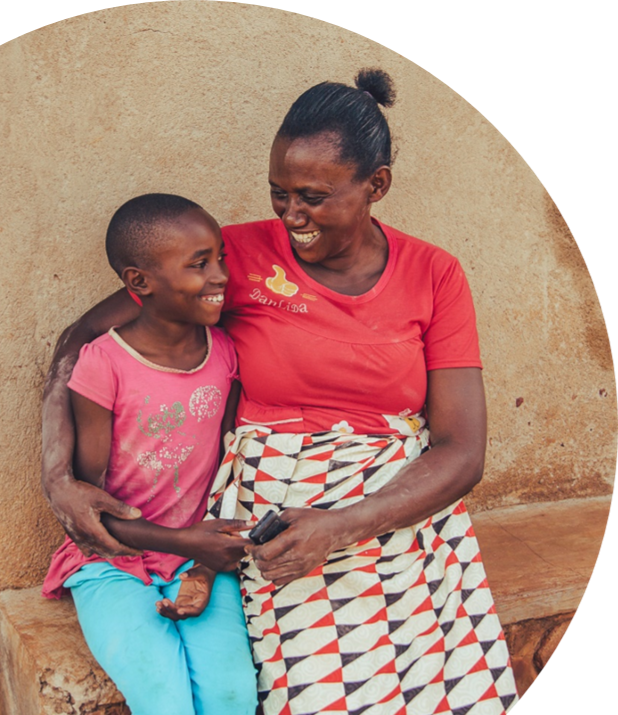 The beating heart of this problem is gender inequality and stereotyping, which keeps women out of the workforce, devalued, and trapped in poverty. Worldwide, more than 2.7 billion women are legally restricted from having the same choice of jobs as men. Agricultural workers are a good example. Women often tend land – but they may be precluded from owning it.
The beating heart of this problem is gender inequality and stereotyping, which keeps women out of the workforce, devalued, and trapped in poverty. Worldwide, more than 2.7 billion women are legally restricted from having the same choice of jobs as men. Agricultural workers are a good example. Women often tend land – but they may be precluded from owning it.
Women in the Global South often face built-in legal obstacles, hurtful and antiquated cultural norms, and barriers to education. As a result, most become part of the informal economy where the workdays are long and hard, the protections and legal rights are few or non-existent, and the pay is low and insufficient to escape poverty. More than 90 percent of women’s employment in low-income countries is in the informal economy.
When more women work, economies grow. Women’s economic empowerment increases economic diversification and income equality that benefits all. Creating quality jobs and transforming economic opportunity for women requires economic, legal, and social changes. The vulnerabilities that currently exist in women’s work must be addressed and policies must be developed to remove the barriers preventing women from fully participating in the labor force.
| In the United States, Equal Pay Day for all women was March 12, 2024. That day marks how far into 2024 a woman must work to equal what a man earned in 2023. Women in the US earn 84 cents for every dollar earned by a man. For Black women, that gap is higher and the day marking equal pay won’t come until July. For Latina women, it’s in October. |
About Our Grantee
This month, Together Women Rise is funding two featured grantees: Kula Project (general operations and capacity building) and Upaya Social Ventures (general operations), each with $50,000.
Kula Project
Kula Project eradicates poverty through the development of entrepreneurs in Rwanda’s coffee communities.
Based on the belief that when people, especially women, have the tools and opportunities to start and grow businesses, they can move out of extreme poverty and create generational change for their families, Kula was founded with the purpose of investing in the ideas and businesses of people living in poverty.
Since 2014, Kula has been working exclusively in Rwanda alongside female coffee farmers and their families. In response to the disproportionate barriers in access to resources, knowledge, and opportunity that female coffee farmers face, the Kula Fellowship was created. It equips farmers and their families with training, tools, and resources to increase their coffee production, business training and financial investment to support them in launching diversified revenue streams, and personal mentorship to coach them through the process.
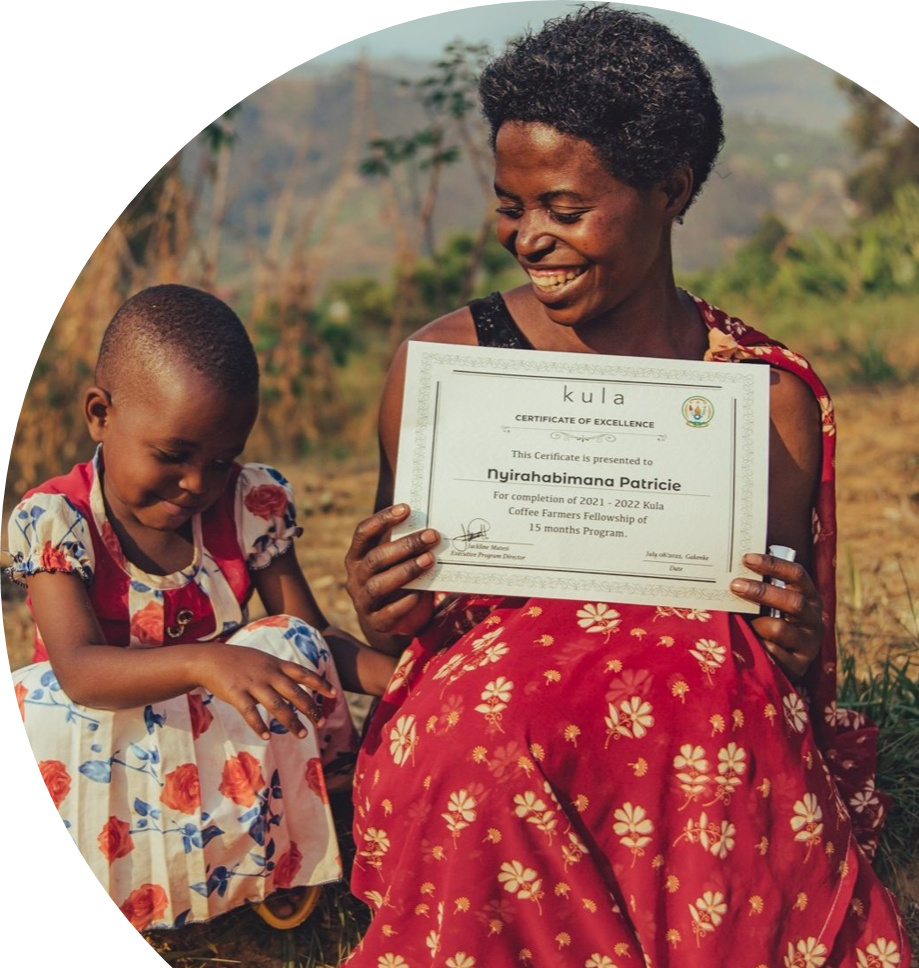 The 15-month Kula Fellowship is built atop Kula’s primary program pillars: Women’s Empowerment, Regenerative Impact, Environmental Sustainability, and Evidence-Based Action. The Women’s Empowerment pillar is based on the proven belief that when women have the opportunity to earn income and access finance, the chance to gain strategic knowledge and skills, and the right to make decisions for themselves and their families, more equitable and sustainable livelihoods result.
The 15-month Kula Fellowship is built atop Kula’s primary program pillars: Women’s Empowerment, Regenerative Impact, Environmental Sustainability, and Evidence-Based Action. The Women’s Empowerment pillar is based on the proven belief that when women have the opportunity to earn income and access finance, the chance to gain strategic knowledge and skills, and the right to make decisions for themselves and their families, more equitable and sustainable livelihoods result.
Kula works with entire households, counting each program participant that receives training, strategic inputs, access to finance, and coaching as a Fellow. Household delegates, however, are the primary representatives of each household with regards to communication, monitoring, and follow up. Kula requires 75 percent of household delegates to be women, which emphasizes women’s empowerment and equitable entrepreneurship. This is key because in the majority of the communities where Kula works, women are not listened to or engaged in decision-making at the same frequency or capacity as men. Naming women as household representatives challenges the cultural mindset that a woman’s voice in the household is not as important as the man’s from the start of the program. This is reinforced and supported through focused training on the importance of gender equity throughout the Fellowship. Additionally, unmarried women account for approximately 20 to 25 percent of each Fellowship cohort.
Kula works with remarkable women who are paving a new path for themselves and the generations that follow them – women in rural Rwandan coffee-farming communities with households living under the extreme poverty line (classified as living on less than $2.15 PPP – Purchasing Power Parity – per person per day), with most Fellow households living on less than $0.50 PPP per person per day when they enter the program.
LEARN MORE ABOUT KULA PROJECT
Life Challenges of the Women Served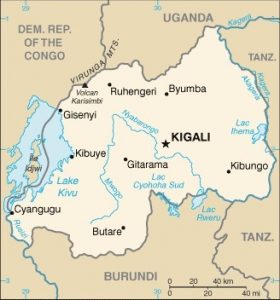
Rwanda
Rwandan society has traditionally been patriarchal, with deep-seated cultural norms and stereotypes that shape gender roles and expectations. As a result, women face systemic discrimination and marginalization in nearly all spheres of life, including education, gender-based violence, economic empowerment, politics, and health.
Limited Access to Education: Rwanda has made great strides in improving access to primary and secondary education for girls. Nonetheless, disparities still exist, particularly in rural areas and for students from the poorest households. Lack of opportunities for these girls further limits their ability to break out of the poverty cycle.
Gender-Based Violence: Gender-based violence remains a significant issue in Rwanda, including domestic violence, sexual assault, and rape. While there have been efforts to combat this through legislation and support services, many women still face challenges in reporting abuse and accessing justice.
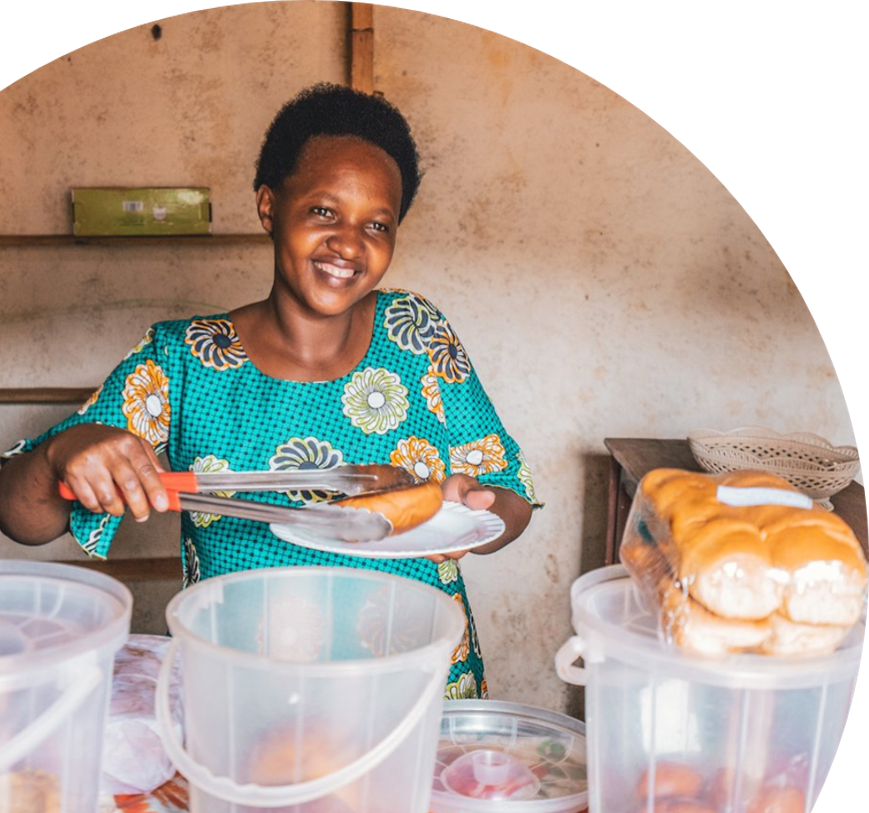 Economic Empowerment: Despite efforts to promote women’s economic empowerment, women in Rwanda often have limited access to resources and credit. According to UN Women, among the keys to achieving economic empowerment are women’s access and equal rights to resources, the ability to make decisions about their lives, and a shift in the systems of social and economic power. Until women can progress in organizational and business leadship, the wage – and the power – gap will remain. Efforts to address those shortfalls, including programs like the Kula Fellowship and UNDP Rwanda’s Gold Gender Equality Seal, get at the heart of issues that deter women’s advancement.
Economic Empowerment: Despite efforts to promote women’s economic empowerment, women in Rwanda often have limited access to resources and credit. According to UN Women, among the keys to achieving economic empowerment are women’s access and equal rights to resources, the ability to make decisions about their lives, and a shift in the systems of social and economic power. Until women can progress in organizational and business leadship, the wage – and the power – gap will remain. Efforts to address those shortfalls, including programs like the Kula Fellowship and UNDP Rwanda’s Gold Gender Equality Seal, get at the heart of issues that deter women’s advancement.
Political Representation: Rwanda has made remarkable progress in women’s political representation, with women holding more than 60 percent of seats in the parliament – the first country in the world to boast a female majority in parliament. However, women still face challenges in attaining leadership positions, especially in the private sector.
Limited Access to Healthcare: Women in Rwanda face challenges in accessing quality healthcare services, particularly in rural areas. Maternal mortality rates remain high, and there are still gaps in reproductive health services, including access to family planning and maternal healthcare.
How Our Grant Will Be Used
Together Women Rise’s $50,000 Featured Grant to Kula Project supports general operations and capacity building for Kula Project’s mission to empower women to earn increased income, diversify their revenue streams, and improve the gender equity and decision-making capacity within their homes and communities. This helps to lead women out of extreme poverty and into brighter, more sustainable futures.
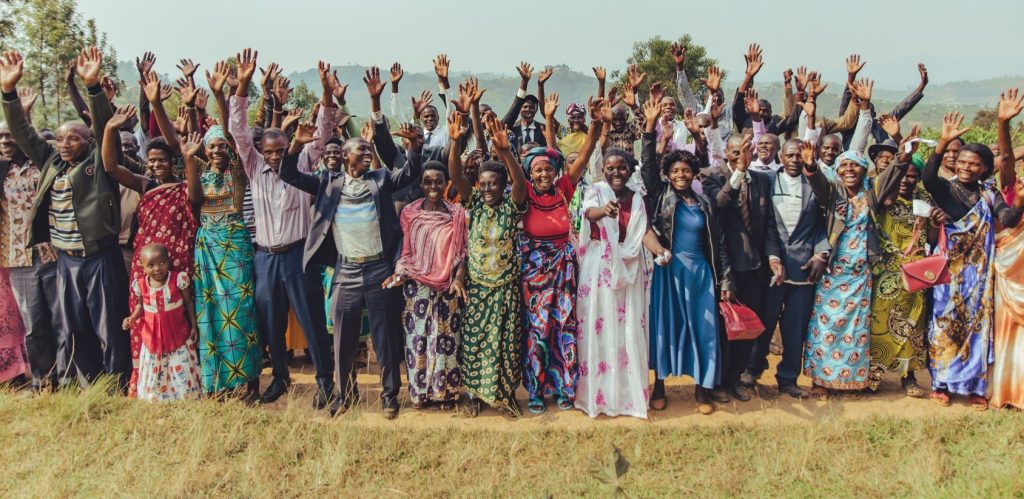
2024 marks the start of Kula’s 2024-2028 Strategic Plan to increase its impact while simultaneously increasing its efficiency and focus, and ultimately scaling its programmatic reach. Funding from Together Women Rise supports Kula Project’s general operations as the organization:
- launches the updated version of the Kula Fellowship and expands the current program capacity from 315 Fellows to 600 farmer Fellows
- maintains a 90 percent Fellowship graduation rate for the 2024 – 2025 cohort
- provides access to finance for 600 Fellows through providing 36 business investment grants to individual businesses and 15 – 20 Village Savings and Loans Associations (VSLA) investments to 15 –20 VSLAs established through the Fellowship
- empowers 285 new or expanded businesses to launch in the Fellowship cohort
- prepares to expand its programmatic reach to a cohort of 1,000 farmers, raising $1.1 million in revenue, hiring an external monitoring and evaluation consultant to train and work alongside its team to redesign monitoring and reporting and learn from its work both after graduation with visual impact dashboards and inside the program itself.
Learn more about Kula Project’s budget in its most recent annual report.
Why We Love This Project/Organization
We love Kula Project because it looks at the work that women are already doing in coffee communities and helps to increase the livelihood of women farmers. This support is focused on increasing training and education to help increase the harvest.
Impact Story
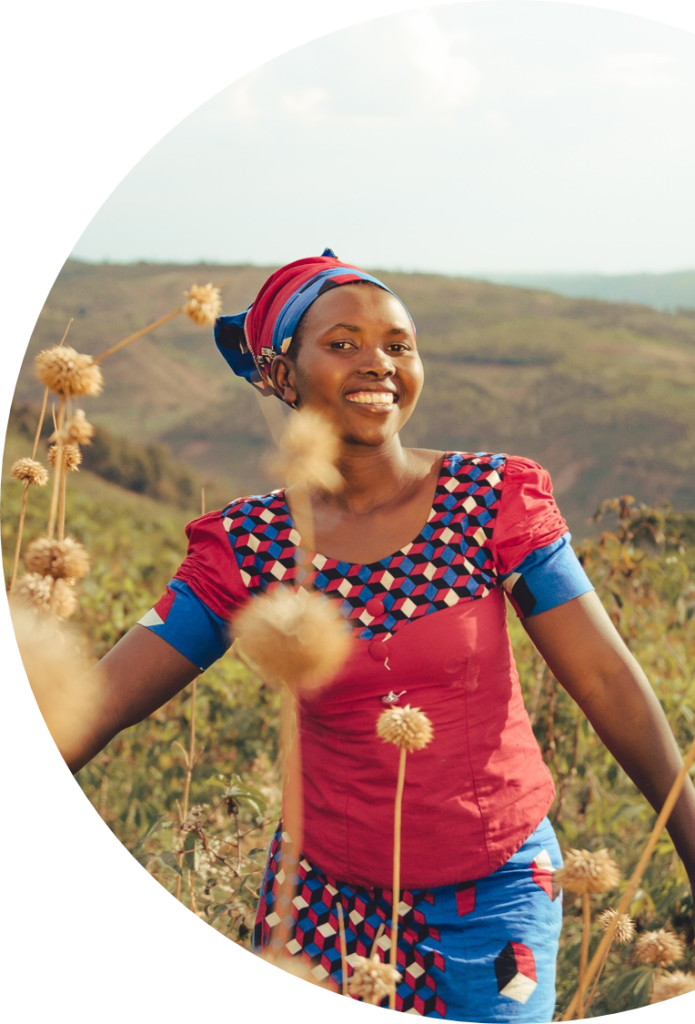 Meet Jeanette
Meet Jeanette
The Jeanette that Kula met in early 2021 when she joined the Kula Fellowship is not the Jeanette of today. She was quiet and shy, lacking confidence and unsure of what her future might be. She and her husband, Everest, were growing coffee to make ends meet but, due to a lack of training and opportunity, they were struggling to provide a better life for their children. After being encouraged by Everest to join a new program he had heard about in their community working to support female coffee farmers, she took a leap of faith and joined the Kula Fellowship.
With every step through the program, Jeanette seemed to push past every barrier that once held her back. Through training in self-esteem, much to her disbelief, she became a Fellowship group leader, guiding fellow farmers toward collective progress. After engaging in conversations about family and gender equality, she started speaking on women’s issues in her village, eventually running for public office and proudly becoming the Representative for Women in the Murama Sector, Kayonza District. And through training and coaching in business, she participated in Kula’s Business Investment Competition, designing a creative business plan and pitching it in front of a panel of judges, ultimately being chosen as one of the award winners to receive financial investment.
Even in the midst of unforeseen obstacles, like the challenge of inflation and high costs that threatened to stop her from using her award to open up a shop in her local community, Jeanette charged forward by pivoting wisely. She invested the money into her coffee farm instead and expanded it from 200 to 2,700 trees — a 1,250 percent increase. Since then, Jeanette and her husband have made great strides for themselves and their three children, increasing their household income by over 3,000 percent, enabling them to provide for their family, send their children to school, and use the remaining income to open the shop from a financially stable position. But that’s not all! Once her entire farm is producing harvest and her new shop is running smoothly, Jeanette plans to fulfill her ultimate dream of going back to school without any financial worries.
| Upon graduating from the Kula Fellowship, Jeanette said, “Now, the sky is no longer the limit… because my dreams exceed all limits.” |
Upaya Social Ventures
Upaya’s mission is to create dignified jobs for the poor in the most underserved segments of India, especially women who face disproportionate access to quality jobs and fair income. It provides investment and support to early-stage companies creating dignified jobs for people in extreme poverty.
Since 2011, Upaya has been generating lasting, dignified jobs by partnering with small and growing businesses (SGBs) that employ the extremely poor in India. These SGBs are too large for microfinance but not yet ready for traditional investments. In 2018, Upaya took a stand by requiring that half the companies it invests in be run by women
|
“We believe that women founders hire women workers. We know that women workers invest in their families,” according to Upaya. |
When Upaya invests in a company, it starts with an extensive selection process. Upaya then partners with that company through coaching, identifying needs and ways to help, and surveying jobholders to help the business and Upaya improve their impact. Upaya also runs an accelerator program to help companies through a curriculum on investment readiness, impact management, and leadership development.

In 2023, Upaya began to require that portfolio companies report quarterly on the number of women they employ. To date, 46 percent of the 33,800 jobs created by Upaya are held by women. This is a first step in setting gender standards for the companies in which Upaya invests. And the organization is using that reporting to understand differences in pay and promotion for women in order to uncover the root causes of those differences and guide companies to overcome them. Upaya is especially seeking out companies and industries that specifically create dignified jobs for women. It is more likely to invest in a company that can demonstrate a commitment to employing women at scale.
LEARN MORE ABOUT UPAYA SOCIAL VENTURES
Life Challenges of the Women Served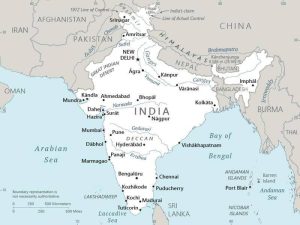
India
Women in India face systemic marginalization and worse throughout their lives. This mistreatment begins in childhood when, often, they are considered less desirable than boys, and it continues relentlessly as they are consistently viewed as inferior to men.
Deep poverty: In India, 360 million people – more than every US man, woman, and child – live in squalid conditions and are among the most impoverished in the world. Twenty percent live far below the poverty line.
Violence: Many frequent and severe incidents of sexual harassment and assault are reported each year in India. One out of four women report having experienced physical violence from a spouse. At least two women are sexually assaulted every hour, and every six hours a young married woman is beaten to death, burned, or dies by suicide. One out of three girls in India is married before the age of 18. Trafficking of women for sexual exploitation is an international human rights crisis, and India is an epicenter of the problem with an estimated 18 million of the world’s enslaved population. There are five red light areas in Calcutta alone, with a captive population of at least 100,000 women and children. Ninety percent of girls and 75 percent of boys growing up in red light areas have been sexually abused by the age of 8. These areas are also hot spots for many gender violence issues, such as forced child marriage, rape, and severe domestic violence.
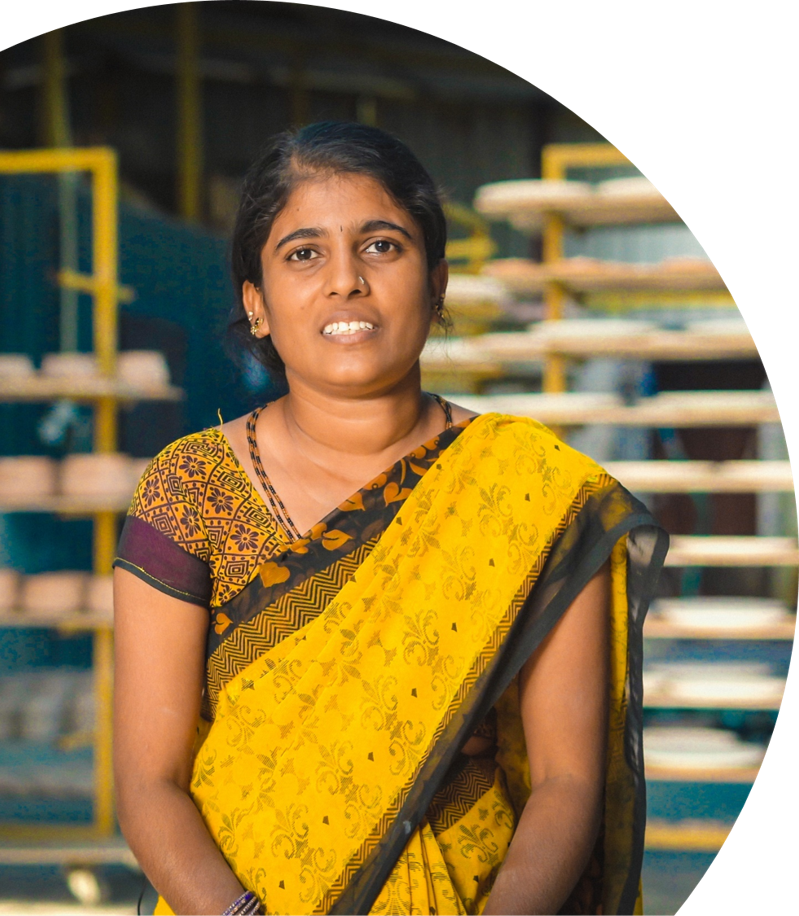 Health and education: The non-communicable diseases (NCD) crisis in India is one of the most significant health and development challenges of the century. NCDs, such as diabetes and heart disease, cause a financial burden for individuals and families due to the high cost of treatment and the loss of stable employment. This is especially true in vulnerable communities where the cost of healthcare is out of reach and therefore the financial consequences are catastrophic. Women bear the brunt of caring for family members with NCDs.
Health and education: The non-communicable diseases (NCD) crisis in India is one of the most significant health and development challenges of the century. NCDs, such as diabetes and heart disease, cause a financial burden for individuals and families due to the high cost of treatment and the loss of stable employment. This is especially true in vulnerable communities where the cost of healthcare is out of reach and therefore the financial consequences are catastrophic. Women bear the brunt of caring for family members with NCDs.
Employment: According to the estimates of the World Inequality Report 2022, men earn 82 percent of the labor income in India, whereas women earn 18 percent. The pay gap widens as women move up the career ladder. Steady and dignified employment eludes the extremely poor of India, where nearly 256 million people live on less than $1.90 per day. This is particularly acute for women. According to the World Economic Forum’s 2022 report, India ranks 143 out of 146 countries in women’s Economic Participation and Opportunity. In one study, 85 percent of 6,600 female respondents in India said they needed permission from their families to work. The female workforce participation rate in India continues to be one of the lowest in South Asia.
How Our Grant Will Be Used
Together Women Rise’s $50,000 general operations grant will support Upaya’s mission as the organization moves into its second decade.
Upaya has identified a large need to address gender wage disparities among the extreme poor in rural areas of India. While there is positive momentum around gender lens investing and creating meaningful employment for women, there remains a crucial need to improve the capacities of investors and enterprises in measuring and reporting the impact of jobs on a gender-disaggregated basis. Data collection, analysis, and synthesis of results are still underdeveloped and there are only a handful of investors in India who conduct gender-disaggregated studies of their portfolios. Upaya is leading the way on this front.
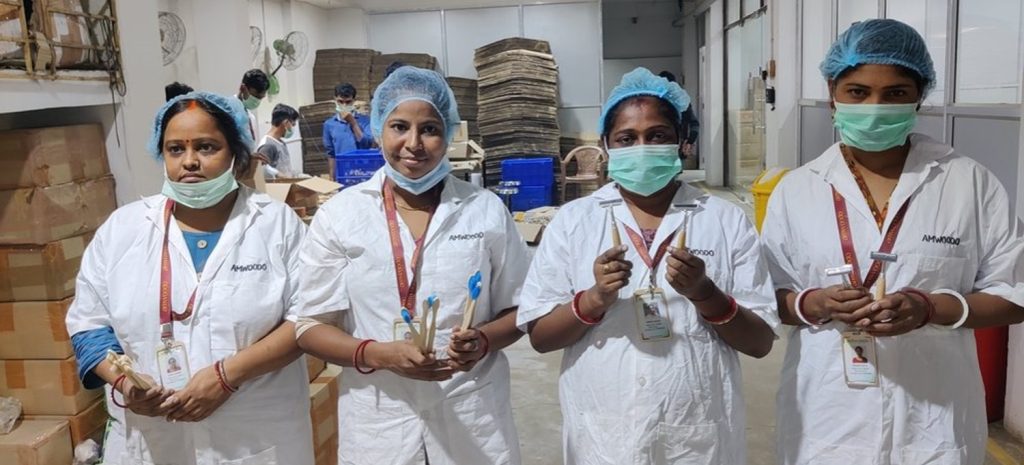
Funding from Together Women Rise will enable Upaya to gather valuable insights on the gendered experience of jobholders in its portfolio, measure the disproportionate impact of extreme poverty on women, and define effective methods to overcome the widening gender wage gap in rural India. Findings from the analysis will be used to help entrepreneurs design sustainable jobs for women and increase their access to equal and just pay. The hope is that this data will allow Upaya and similar organizations with a commitment to empowering women to direct funding to initiatives that create sustainable improvements in women’s welfare in India.
Upaya has already created 38,000 dignified jobs. Its goal is to reach 50,000 jobs by the end of 2025. For each direct job created, the organization assumes an additional four household members whose lives are improved. This means a total impact of 250,000 people.
Learn more about Upaya’s impact and investments.
Why We Love This Project/Organization
We love Upaya because it creates dignified jobs for women and elevates social impact investing. It provides an innovative approach to helping to create workplace policies as part of social franchising for businesses.
Impact Story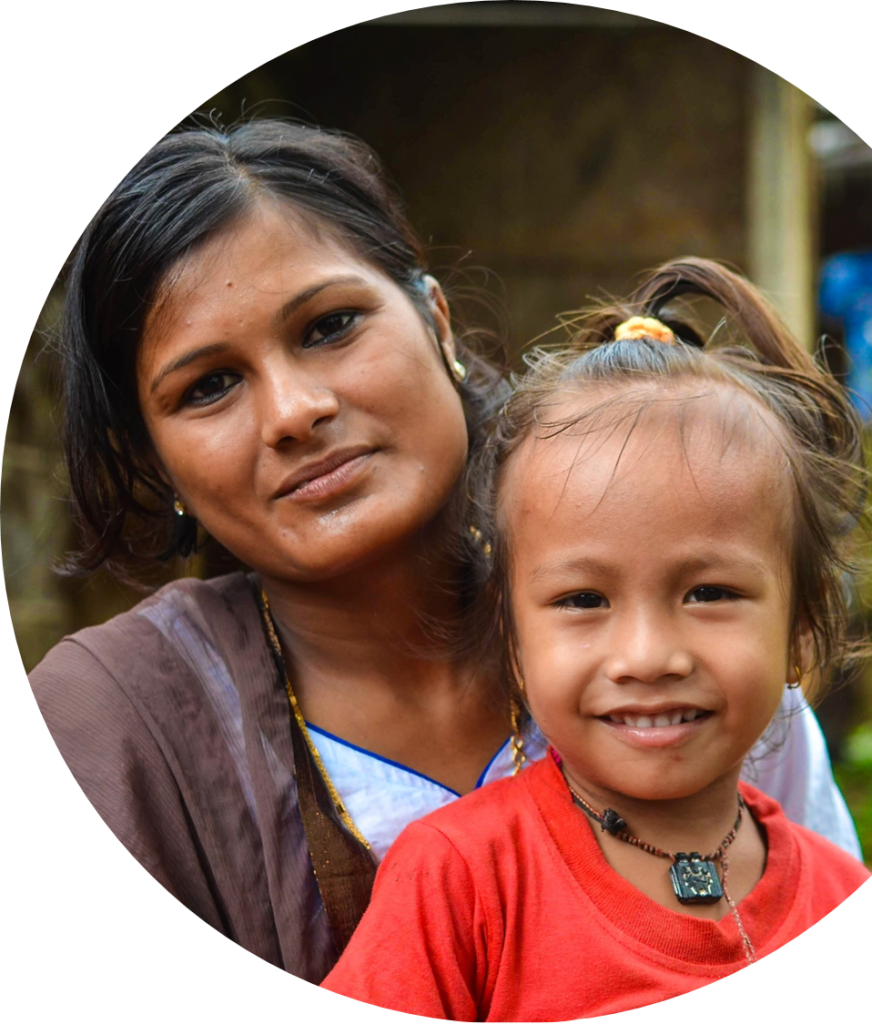
Meet Jamuna*
Jamuna is from Dimapur, Nagaland in India. She is 27 years old and has a son, Anand.
When Jamuna was 17 and in high school, she got married and moved to Shillong, where she lived with her husband and their son for many years. During that time, Jamuna’s husband became physically and verbally abusive. He would not allow her to leave the home and forced her to drop out of school.
Gathering courage in the face of despair, Jamuna took her son and left. Their newfound freedom brought its own challenges. With no source of income and a son to provide for, Jamuna grappled with the harsh reality of poverty, with each day presenting a daunting struggle for survival. Amidst this uncertainty, a glimmer of hope emerged when she learned of Maitri Livelihood Services, a partner company of Upaya, through a neighbor who worked for the same company. Maitri is a domestic service placement and management company that recruits, trains, and secures employment for women from disadvantaged Northeast communities. She seized the opportunity and began training as a childcare provider. She is now a childcare Shakiya (helper) at Maitri, and she is proud to earn money to take care of her son, hoping to send him to school to become a doctor. As she dreams of nurturing her son’s aspirations and providing him with the education she was denied, Jamuna embodies the triumph of the human spirit over adversity.
|
“I am earning on my own and feeding myself and my son. When my son grows up, I don’t want him to feel that I did not take care of him,” Jamuna said. |
*The names of the woman and her child have been changed to protect their identities.
Learn More
Country, Customs, & Cuisine
Proven Platter
Recipes
Source Materials
World Bank Jobs and Development
More and Better Jobs for Developing Nations
Why the Majority of the World’s Poor are Women
Women’s Work in Developing Countries
UN Women – Economic Empowerment
UN Women – Accelerating Economic Empowerment
UN – Employment and Decent Work
Challenges Faced by Women in India
Indian females in the twenty-first century: how they have fared?
UN Women – Economic Empowerment Strategy
Glossary
PPP – Purchasing Power Parity: PPP puts each country’s income and consumption data in globally comparable terms.
SGBs – small and growing businesses
